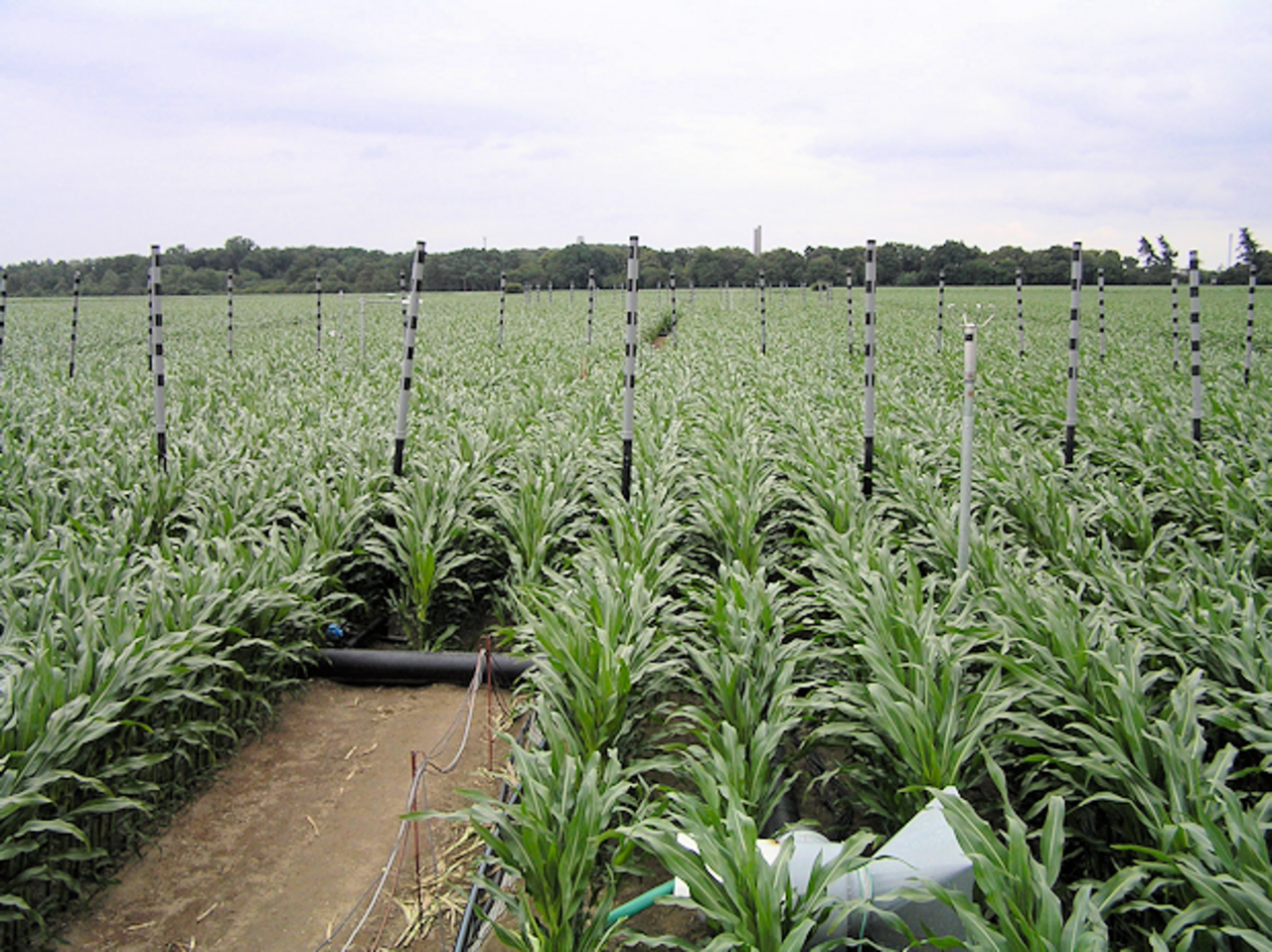Project
Interaction of rising CO2 level and summer drought on maize growth

Experiments for improving model based recommendation for adaptation of agriculture to regional climate changes: feed back effects of future atmospheric CO2 concentrations on water balance in agroecosystems
According to the climate prediction of the IPCC the atmospheric CO2 concentration and the severity of summer drought will increase over the next decades. In the context of the BMBF-research project LANDCARE2020 the Institute of Biodiversity of the vTI will conduct a biennial field experiment for studying the effect of CO2 and water supply on maize. Special attention is paid to the effects of the treatments on water balance of the agroecosystems. The main objective is to investigate whether CO2 enrichment increases water use efficiency.
Background and Objective
Predicting future maize yields requires quantifying anticipated climate change impacts on maize growth and yield. In the present study, maize was grown over two years (2007 and 2008) under sufficient (WET) and reduced water supply (DRY) and under ambient (378 µl l-1, AMB) and elevated (550 µl l-1, FACE) atmospheric CO2 concentration ([CO2]) using free air CO2 enrichment (FACE).The objective of the present study was to prove that maize growth does not respond to elevated [CO2] under WET but under DRY conditions due to the reduction in transpiration. Moreover, in 2008 soil cover was varied to test whether mitigation of evaporation by straw mulch increases the CO2 effect on water use efficiency of biomass production (WUE).
Approach
Maize was cultivated with ambient and elevated CO2 concentrations (550 ppm) combined with sufficient and restricted water supply. Measurements included recording of environmental conditions (CO2 concetnration, soil moisture, canopy microclimate etc.) and crop growth data.
Data and Methods
Different techniques were tested to induce drought stress under FACE conditions. In the second year a flexible rain shelter system was successfully combined with FACE technique to achieve soil drought in a maize field under FACE conditions.
Water use by the plant was measured by sap flow sensors.
Our Research Questions
How large is the effect of elevated CO2 concentration on growth and yield of maize under ambient and restricted water supply.
How large is the effect of elevated CO2 on whole plant transpiration and on water use efficiency of seasonal above ground biomass production .
Results
Elevated CO2 combined with wet soil conditions did not affect crop growth but significantly reduced whole plant transpiration.
However under drought there was significant increase of maize biomass and yield under elevated CO2.
There was a significant interaction of [CO2] and water supply on WUE with a small CO2 response under WET and a strong effect under DRY.
It is concluded that maize will benefit from the increase
in [CO2] only under drought but not under sufficient water supply.
Involved Thünen-Partners
Involved external Thünen-Partners
- Leibniz-Zentrum für Agrarlandschaftsforschung (ZALF) e.V.
(Müncheberg, Deutschland) -
Technische Universität Dresden
(Dresden, Tharandt, Deutschland)
Funding Body
-
Federal Ministry of Research, Technology and Space (BMFTR)
(national, öffentlich) -
Federal Ministry of Research, Technology and Space (BMFTR)
(national, öffentlich)
Duration
11.2006 - 12.2009
More Information
Project funding number: 01LS05108
Funding program: BMBF - BioEnergie 2021 - Forschung für die Nutzung von Biomasse
Project status:
finished





